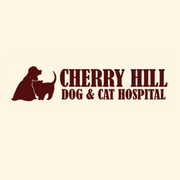
While your pet may be used to eating a particular food brand, some ingredients and supplements are recommended during certain stages of life. Many brands are specially formulated to treat various medical conditions. Below is more information about why your pet’s veterinarian may prescribe a certain diet.
Understanding Prescription Diets for Pets
Which Diseases Can Prescription Diets Improve?
Both cats and dogs may be prescribed special low-fat, low-sugar diets if they struggle with heart disease, excess weight, or diabetes. Animals with kidney disease may need diets low in phosphorus, which can affect the kidneys, and pets with heart issues may need diets lower in salt. If your animal is older and struggles with mobility and arthritis, your veterinarian may also prescribe foods high in glucosamine and chondroitin, which can improve joint health.
One of the most common diets prescribed is a urinary diet for cats to prevent crystals in their urine which cause cystitis. This diet is not used for cats and dogs with kidney disease, as this meal plan decreases crystal formation, and is contraindicated for pets with kidney disease. A smaller number of dogs require urinary diets to prevent recurrence of bladder stones.
How Are Prescription Diets Different?
 Prescription pet foods are carefully manufactured to leave out ingredients that may be harmful to your pet, and many may also contain additional supplements to support your animal’s health. These prescription foods tend to be more expensive, although many are available at pet stores and through online shops. Many veterinarians keep these diets in stock and can get your pet started. A prescription is required from your veterinarian to purchase diet food to ensure you are getting the correct one for your pet.
Prescription pet foods are carefully manufactured to leave out ingredients that may be harmful to your pet, and many may also contain additional supplements to support your animal’s health. These prescription foods tend to be more expensive, although many are available at pet stores and through online shops. Many veterinarians keep these diets in stock and can get your pet started. A prescription is required from your veterinarian to purchase diet food to ensure you are getting the correct one for your pet.
Your veterinarian may prescribe a particular variety of pet food, such as one made for joint health. There are also designated pet food companies that manufacture prescription foods, so talk with your veterinarian about what your animal needs, where to find it, and what to expect in terms of cost.
Whether your furry friend seems a bit fatigued or you are concerned about helping them through a medical challenge, Dr. Douglas Foreman and Dr. Roberta Mauro at Cherry Hill Dog & Cat Hospital in Elkton, MD, can help. These experienced veterinarians can determine the right prescription diet food to ensure your pet continues to lead a healthy life. Visit their website to learn more about their services and call their office at (410) 398-1331 to make an appointment.
About the Business
Have a question? Ask the experts!
Send your question

